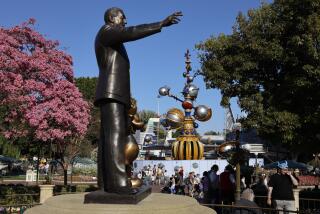High Court Rebuffs LAPD, Santa Monica
While reaffirming its landmark 1966 Miranda opinion, the U.S. Supreme Court on Monday had a specific word for the Los Angeles and Santa Monica police departments: No.
The high court turned down the departments’ request to review a ruling that barred their long-standing but now-discontinued practice of continuing to question suspects even after those suspects had invoked constitutional rights to remain silent or to consult with lawyers.
That ruling, delivered in November by the U.S. 9th Circuit Court of Appeals, held that LAPD and Santa Monica officers were wrong and subject to civil liability for continuing to fire questions at two separate homicide suspects, despite their requests for lawyers or to stay silent.
Both men eventually made incriminating statements that were used against them in court. The Circuit Court decision had been hailed as hugely significant by civil libertarians, who lamented an encroachment on Miranda rights by police forces around the country.
And on Monday, the Supreme Court’s refusal to take up the issue let the Circuit Court decision stand.
“What the decision does is reaffirm that Miranda is as American as apple pie and baseball,” said Mark Rosenbaum, legal director for the American Civil Liberties Union of Southern California.
The Supreme Court has allowed voluntary statements, made after a suspect is read his or her rights, to be used in court.
Police maintained that they should be allowed to continue to question suspects who invoke their 5th Amendment rights in case something is said that could be used for impeachment purposes--in other words, for challenging the truthfulness of statements by defendants who testify on their own behalf.
In 1995, Rosenbaum and Charles D. Weisselberg, a UC Berkeley law professor, filed a lawsuit in U.S. District Court in Los Angeles to redress the alleged deprivation of the rights of inmates James Bey and James McNally.
Los Angeles police officers interrogated Bey while he was handcuffed to a bench in a police station. After giving Bey a Miranda warning and telling him that he was a murder suspect, the officers disregarded his statement that he would not answer further questions without an attorney. Eventually, he did make incriminating statements, which were later used to impeach his testimony at trial. He was convicted of murder and is serving a life sentence.
Santa Monica officers continued to question McNally after he, too, said that he wanted to consult an attorney. After he was assured that his statements would not be used against him, McNally incriminated himself. Although the judge in his case refused to allow the statements to be used during the initial phase of the trial, McNally’s words were used as an aggravating factor during his sentencing on a manslaughter conviction.
The appeals court held that both departments had questioned the suspects in a manner that violated Miranda. In January, the court denied a request to rehear the case. Santa Monica and Los Angeles asked the U.S. Supreme Court to review the ruling.
Santa Monica City Atty. Marsha Moutrie said Monday that the cities opted to challenge the ruling because they believed the officers had followed their training and should not be individually liable in a civil suit.
“We didn’t think it was fair to them,” Moutrie said.
Debra L. Gonzales, deputy city attorney for Los Angeles, agreed.
“The law was not clearly established to put them on notice that they were violating anyone’s constitutional rights,” she said.
Gonzales and Moutrie both said their cities no longer continue to question suspects who have invoked their constitutional rights.
“Ever since the [appeals court] decision came down, we directed officers not to question suspects after invoking their rights,” Gonzales said. “There is too much risk of liability for both the city and the individual.”
More to Read
Sign up for Essential California
The most important California stories and recommendations in your inbox every morning.
You may occasionally receive promotional content from the Los Angeles Times.










